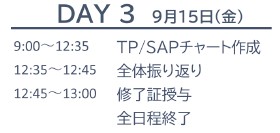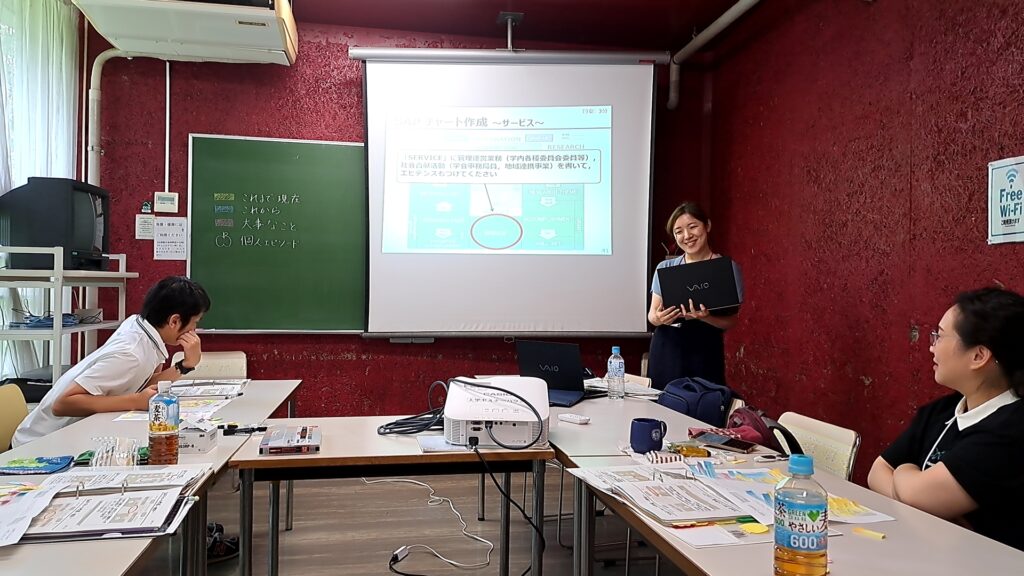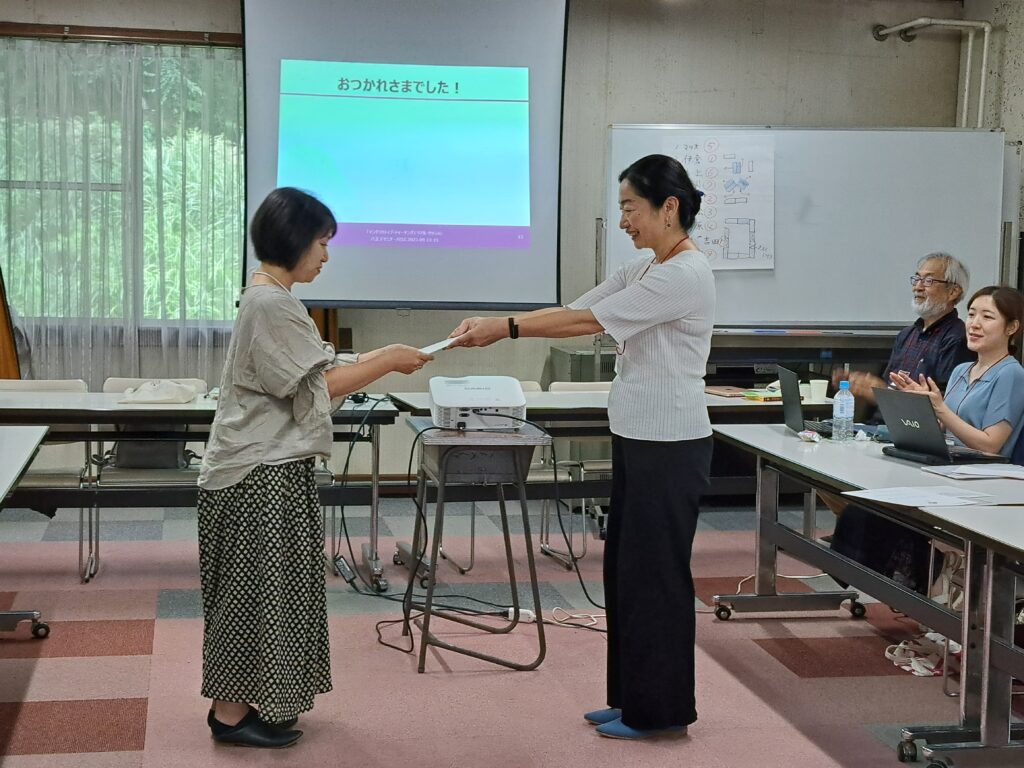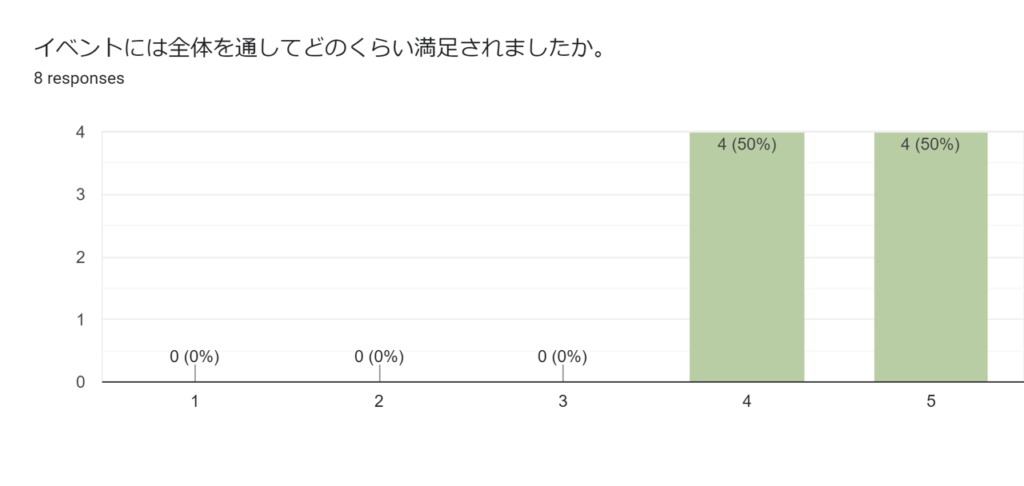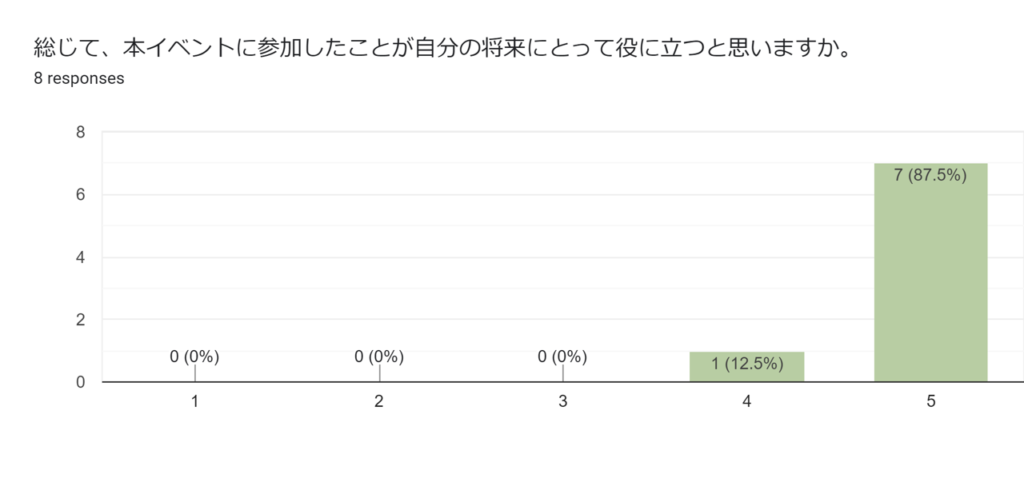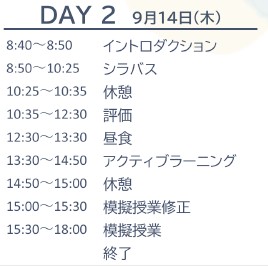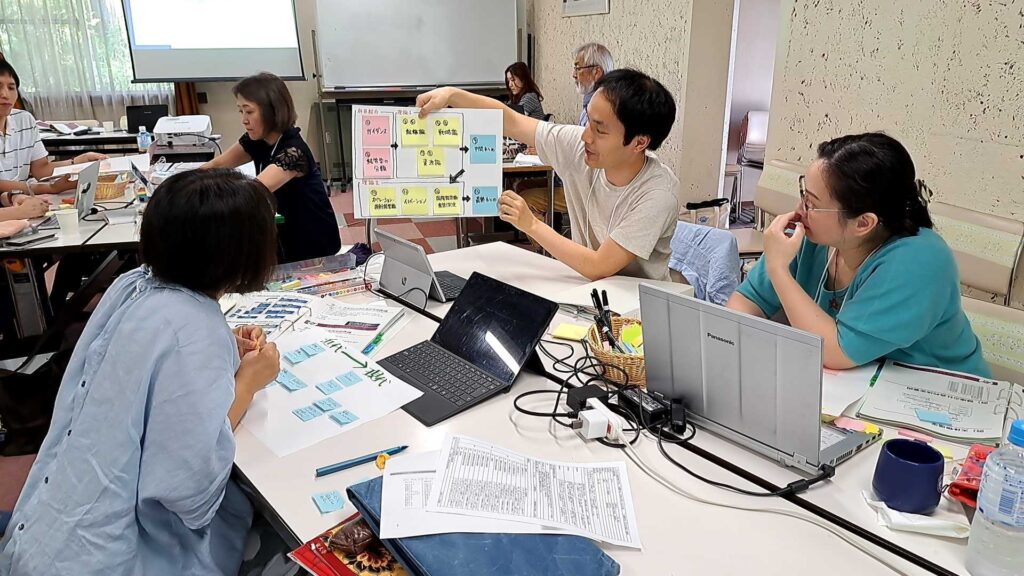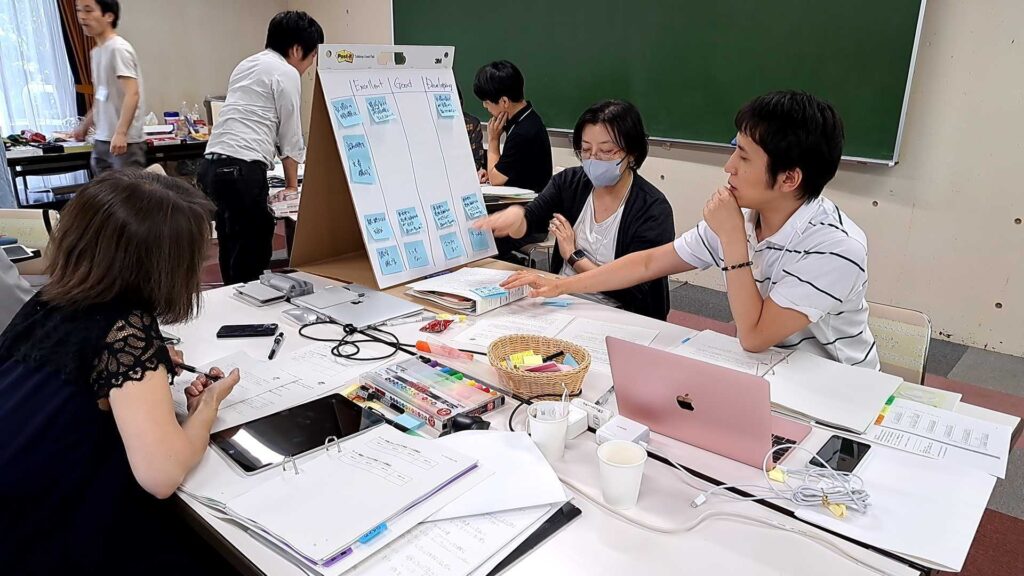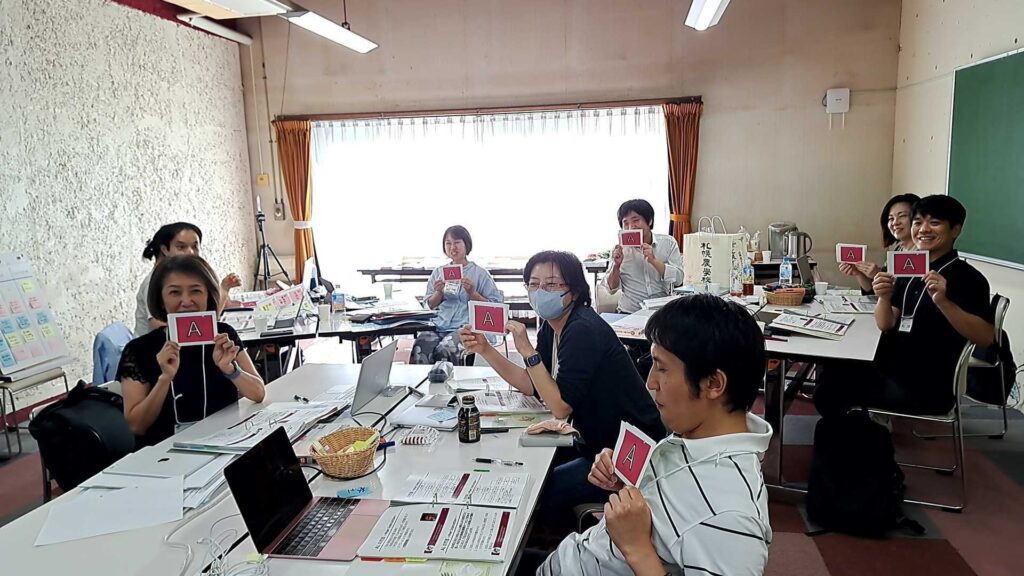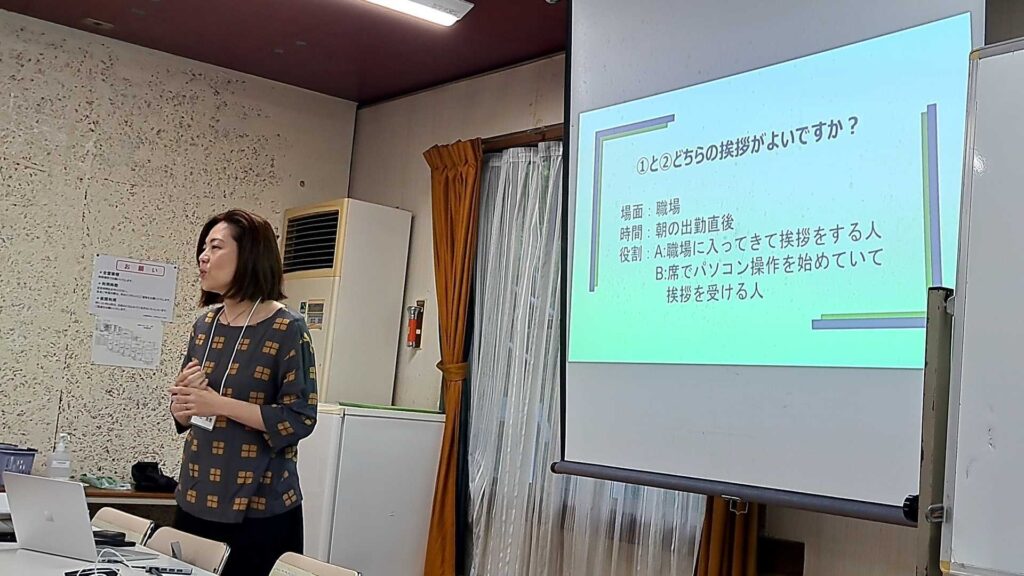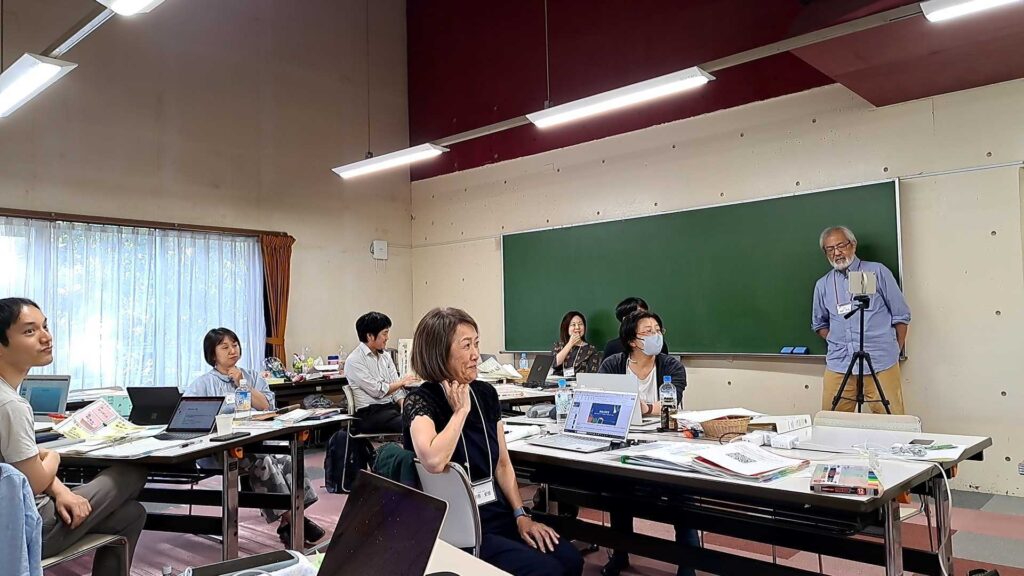We are very pleased to announce that we will hold an intensive 3-day in-person session, Interactive Teaching Real Session. In this session, participants will not only deepen the knowledge they have learned in Interactive Teaching but also learn practically through many works such as conducting a microteaching class, designing a syllabus, and creating a TP/SAP chart.
If you would like to join this event, please fill out the form below (Japanese):
https://forms.gle/gGGeLEBV5o32p9Z26
The information of the event is as follows:
【The outline of Interactive Teaching Real Session】
- Date and time: August 18th (Sun) 9:00-17:00, 19th (Mon) 9:00-17:00, 20th (Tue) 9:00-17:00 (JST) (+ optional social gathering). Note: please participate all three days.
- Format: In-person (Faculty of Education Building, Hongo Campus, The University of Tokyo)
- Instructors: Kayoko Kurita, Wonhwa Park, Airi Kawakami, Osami, Nabeta (the University of Tokyo)
- Targeted attendees: Those who have completed (or are expected to complete by August 11th, 2024) Interactive Teaching and are able to work on the pre-assignments.
- Language: Japanese
- Fee: Free
- Capacity: 16 people
*The selection will be conducted based on the “Motive for Participation” and “Class Design Sheet” submitted through the application form. Results will be notified once your application is reviewed.
- Registration deadline: Monday, 5 August 2024 9:00 AM (JST)
- Content: The goal of this session is to acquire practical knowledge and experience applicable to your own classes, through various exercises based on the learning in “Interactive Teaching”. Prior to the session, we would like participants to complete the pre-assignments: preparation of (1) micro-teaching, (2) class design, and (3) text syllabus. (In terms of the class design and text syllabus, those who are not currently teaching will be asked to prepare them, assuming classes they are likely to be in charge of.) Details will be announced at a later date. For the schedule of the session, please click here.
*For this event, we will conduct a satisfaction survey to understand participants’ opinions, to analyze the learning effects for research purposes and to utilize the results for the improvement of our future events. If the survey is to be published as research, it will be statistically processed and made public in consideration of anonymity. We kindly ask for your cooperation.
*To participate in this session, you are required to complete the course “Interactive Teaching” by August 11th. If you would like to take the Coursera course, please read the following and enroll (for free).
We sincerely look forward to your participation!
====================================
[“Interactive Teaching” Course Description]
・How to take the course: Please sign up on Coursera, and you can take the course from the following URL. Interactive Teaching | Coursera
・Language of instruction: Japanese (English worksheets and subtitles available)
・Lecturers: Dr. Kayoko Kurita (The University of Tokyo) and others
・Fee: Free (An additional fee is necessary for a certificate. )
・Content: The course has eight WEEKs, each comprising three sessions: Knowledge, Skill, and Story. Please refer to Interactive Teaching | Coursera for more details.
[Inquiries]
Airi Kawakami (Center for Research and Development of Higher Education, The University of Tokyo)
E-mail: utokyo_fd@he.u-tokyo.ac.jp
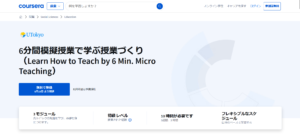
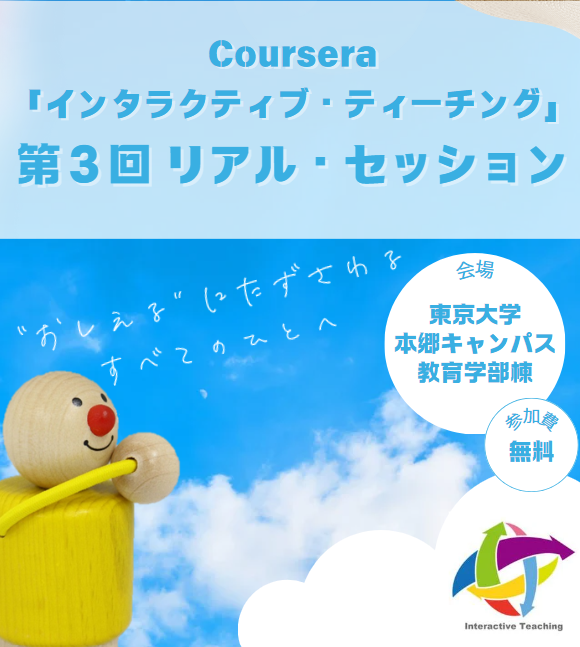
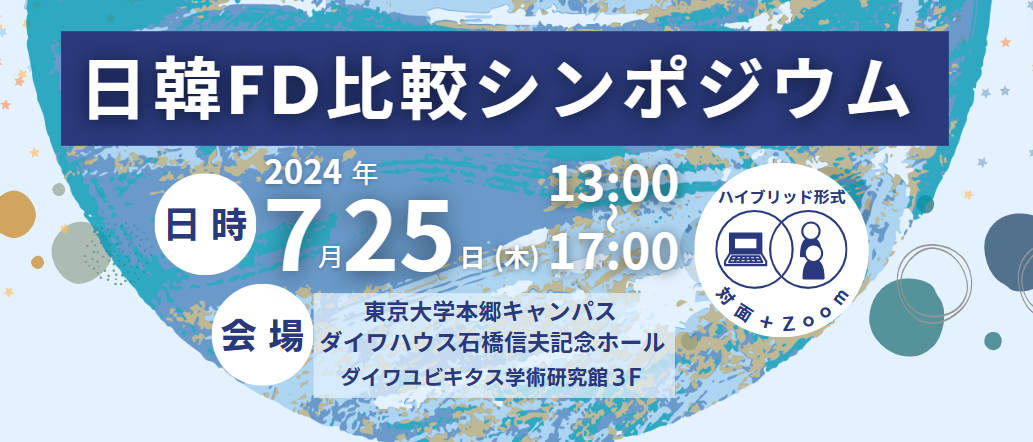
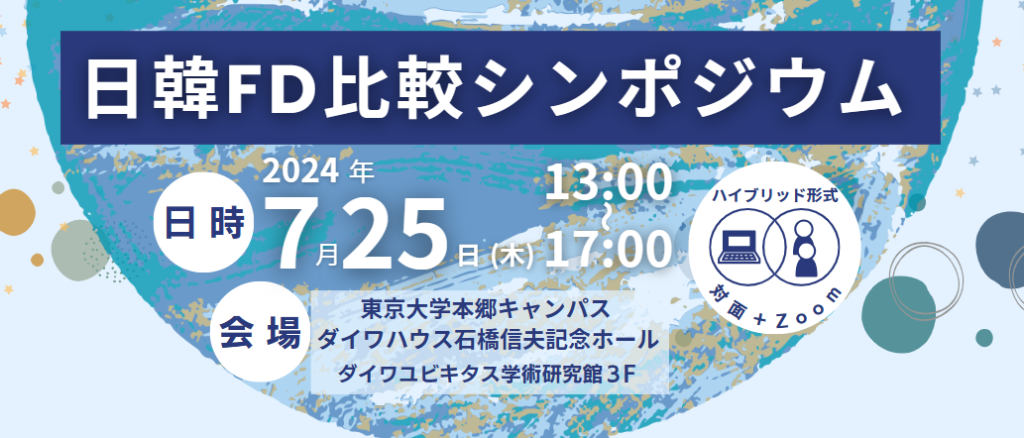
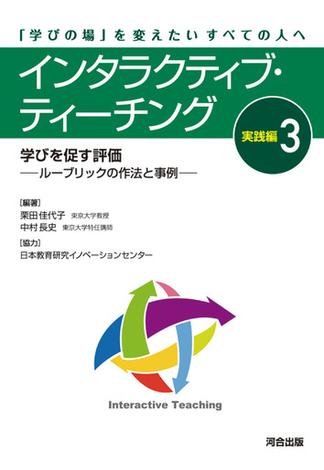
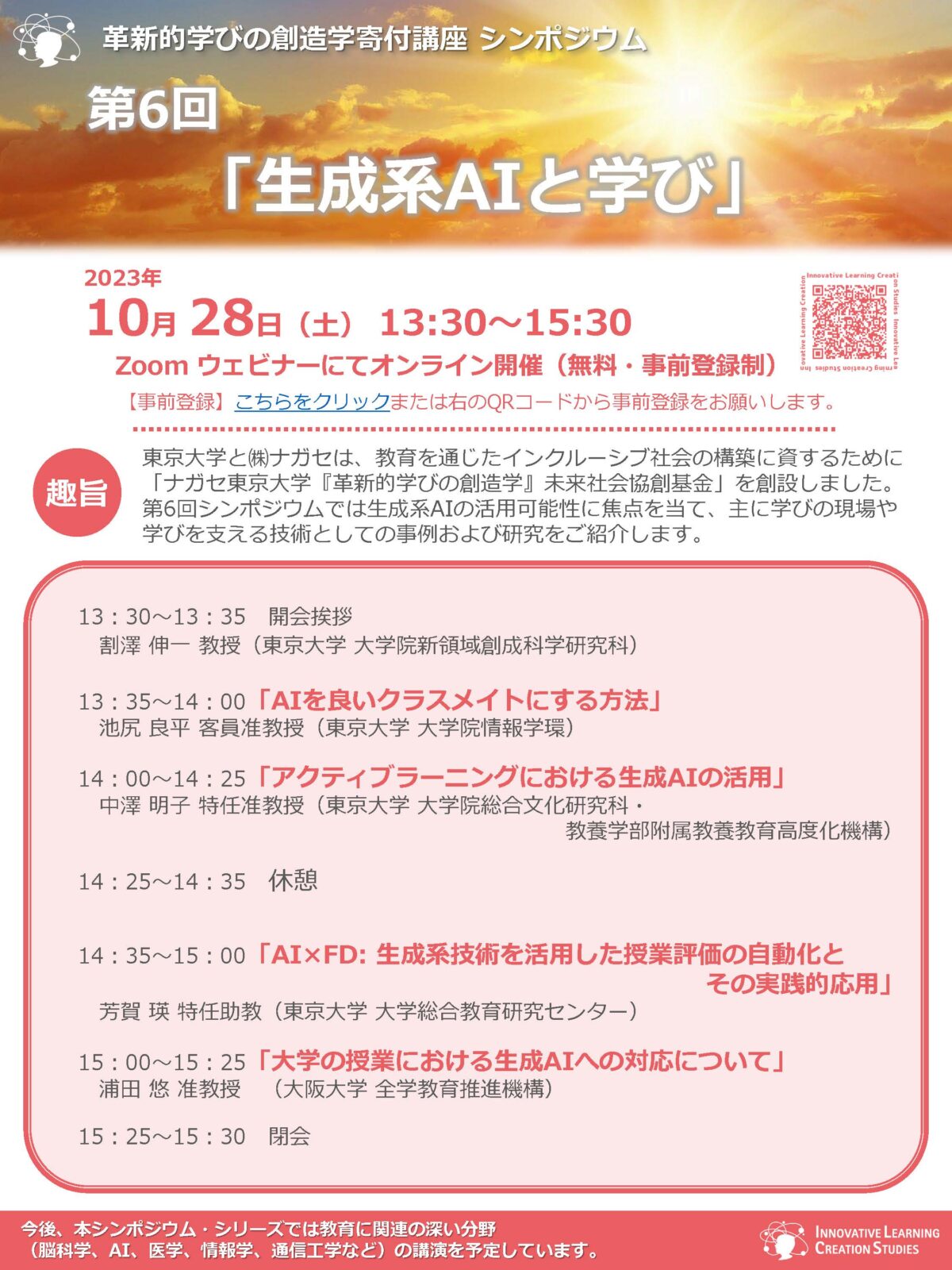
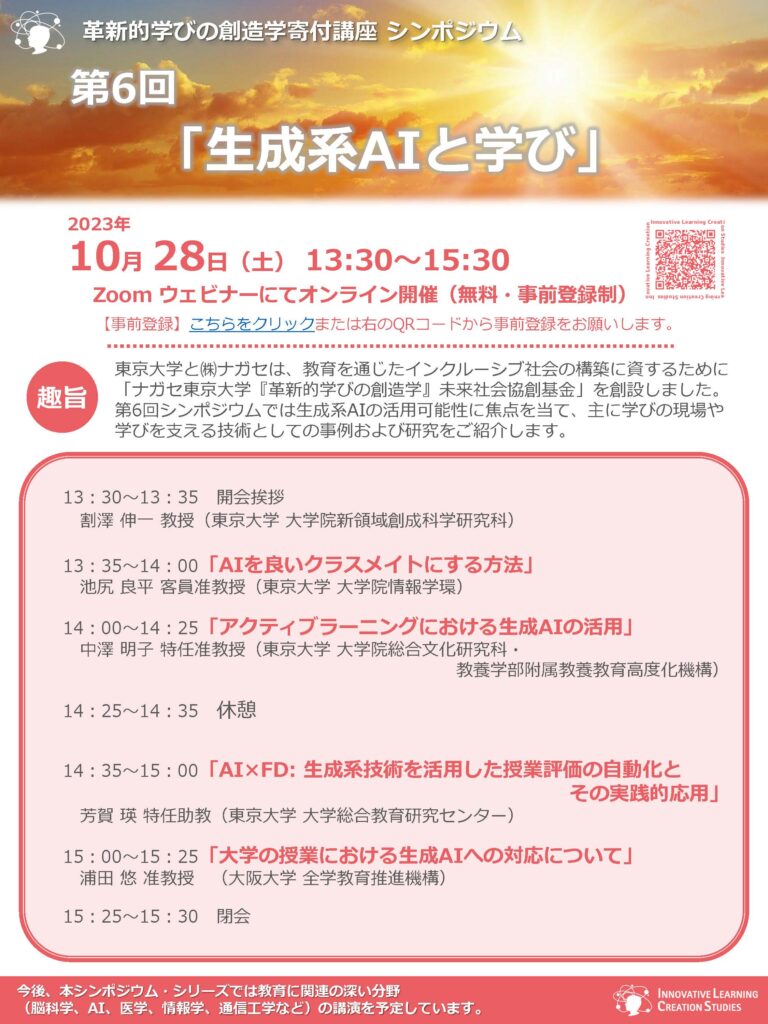

-298x300.jpg)
